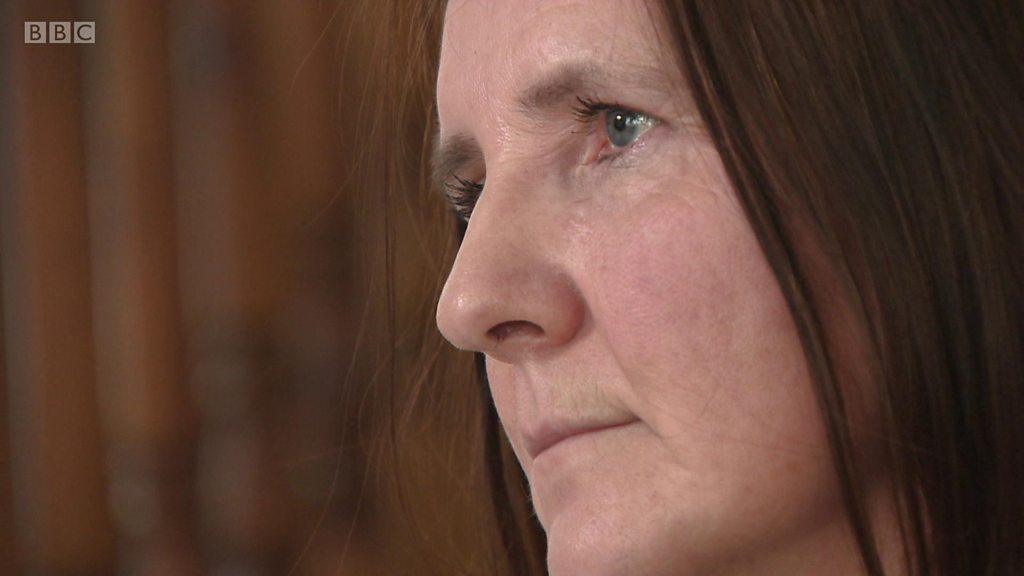Women describe Police Scotland 'boys club' culture
- Published
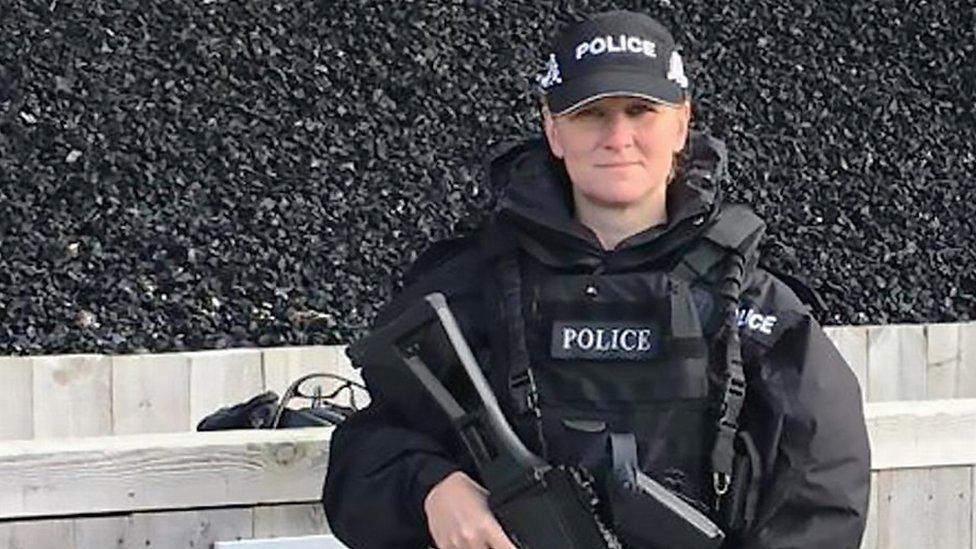
Rhona Malone was a police firearms officer
Four women have spoken to BBC Newsnight about allegations of a "boys club" culture at all levels of Police Scotland, the UK's second largest force.
The women, who include a former assistant chief constable, described a culture of misogyny that failed to properly address their concerns.
They say other women, still working in the force, are too frightened to come forward.
Three of the women have spoken before about their experiences but have banded together because they feel their stories have been lost and there has been no measurable change in attitudes towards female staff in Police Scotland.
In May last year, Rhona Malone won almost £1m in compensation from Police Scotland after an employment tribunal found she had been victimised when she had raised concerns about sexism within the force.
Ms Malone had been a police officer for eight years when she decided to join the firearms unit in Edinburgh.
"It was a huge challenge for any police officer, not just for a woman," she told Newsnight.
At first it was great and the training was amazing, she said, but then she started to see some "horrific behaviour".
She says that when she challenged that behaviour, she was wrongly accused of throwing her utility belt with a loaded firearm.
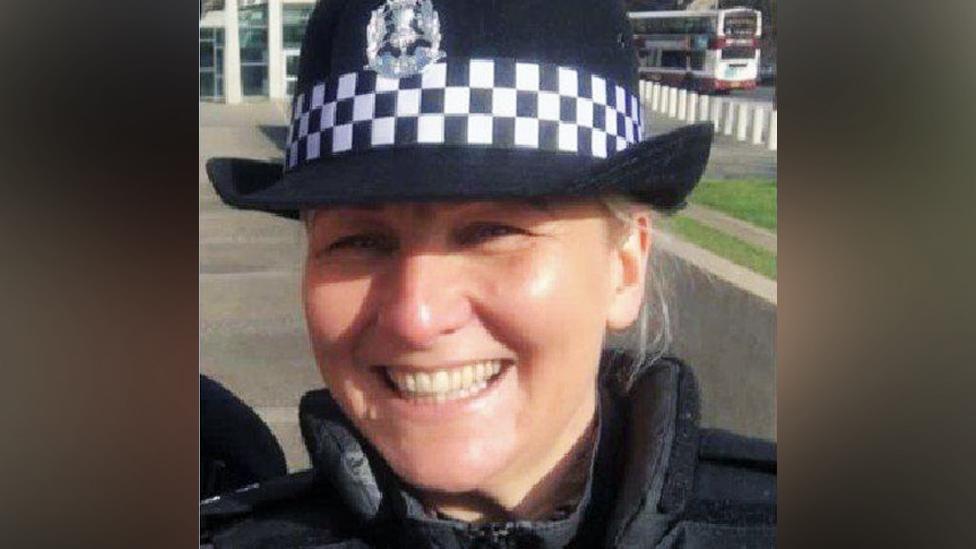
Ms Malone won an employment tribunal case against Police Scotland
The final straw was an email in 2018 from her senior officer which said two female firearms officers should not be working together when there were male staff on duty.
In the email he said "other than the obvious differences in physical capacity, it makes more sense from a search, balance of testosterone perspective".
Ms Malone said it was not easy for her to put in a grievance.
"The minute you do that you have a target on your back," she said.
"It was like Russian Roulette. Either put a grievance in and lose my career, or don't put in the grievance, and then I lose my career because I'm getting accused of throwing weapons, which didn't happen."
After a long, drawn-out process she won her case and received substantial compensation which was mostly swallowed up in legal costs.
"Ultimately it didn't just take my career, it took my mental health as well," she said.
"I'm really sad about that because I loved my job."
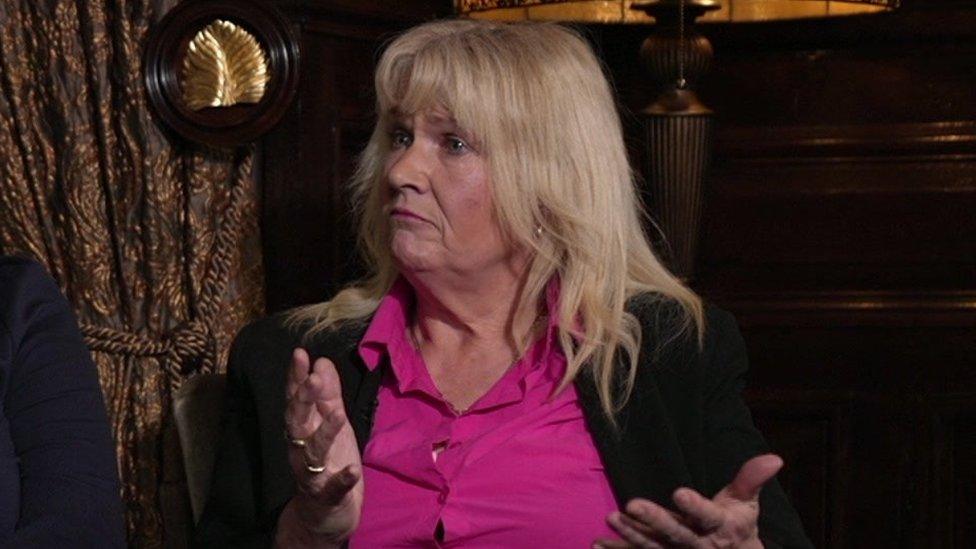
Former Tayside assistant chief constable Angela Wilson said her career was derailed by attempts to change the internal culture
Angela Wilson, the former assistant chief constable of Tayside Police, was one of the officers who openly criticised Police Scotland over Ms Malone's case.
She said it smacked of misogyny and bullying towards female officers who are trained exactly the same as their male counterparts.
Ms Wilson said her own 30-year career was derailed by her attempts to change the internal culture.
The former assistant chief constable, who took early retirement in 2013, said women who complained internally were shut down and made to look like troublemakers.
She called for a judge-led inquiry into Police Scotland's sexism and misogyny.
Police Scotland has just under 17,000 officers, with roughly a third being women.
It was formed in 2013 when the existing eight regional forces were merged.
All the women Newsnight spoke to cited the creation of Police Scotland as a major problem.
Ms Wilson said: "The stories I'm hearing from people do seem to be exacerbated now it's one force.
"You had lots of different chief constables. So in a sense they held each other in check."
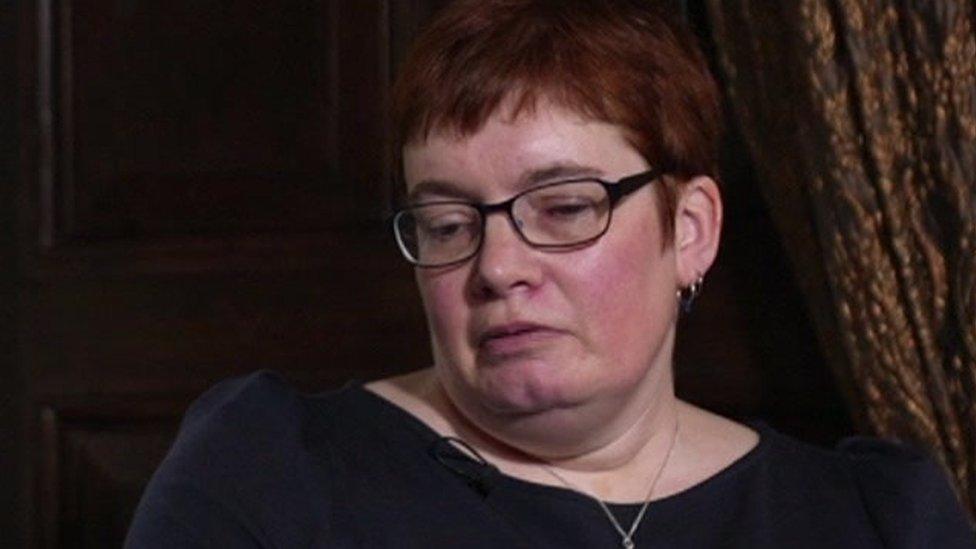
Georgina Gallivan has never before spoken publicly about her experience
Georgina Gallivan has never before spoken publicly about her experience.
She worked for 20 years in an IT civilian role, first for Central Scotland Police, based in Stirling, and latterly for Police Scotland.
Ms Gallivan said she had excellent reviews and appraisals every year up to the point where she complained about a male colleague in 2017.
"After that, it all kind of became 'she's a problem, she's got mental health issues, she's just causing trouble'," Ms Gallivan said.
She said she had found it hard to talk about her experience.
Ms Gallivan said one male colleague in particular disliked her.
"I suppose because I was the only female in the office and he told me that I was hormonal," she said.
"He said to my colleagues I was hormonal and 'women were only on this planet for one thing'.
"It was humiliating in front of colleagues that you've worked with for such a long time."
At first Ms Gallivan said managers appeared to take her complaint seriously and began disciplinary proceedings. However, she said she was not officially informed of the outcome and ultimately the man returned to the office.
According to Ms Gallivan, he continued to be offensive and also engaged in harassing behaviour.
She said she took a long period of sick leave after a breakdown and then resigned when it became clear the intention was to silence and block her rather than engage with evidence.
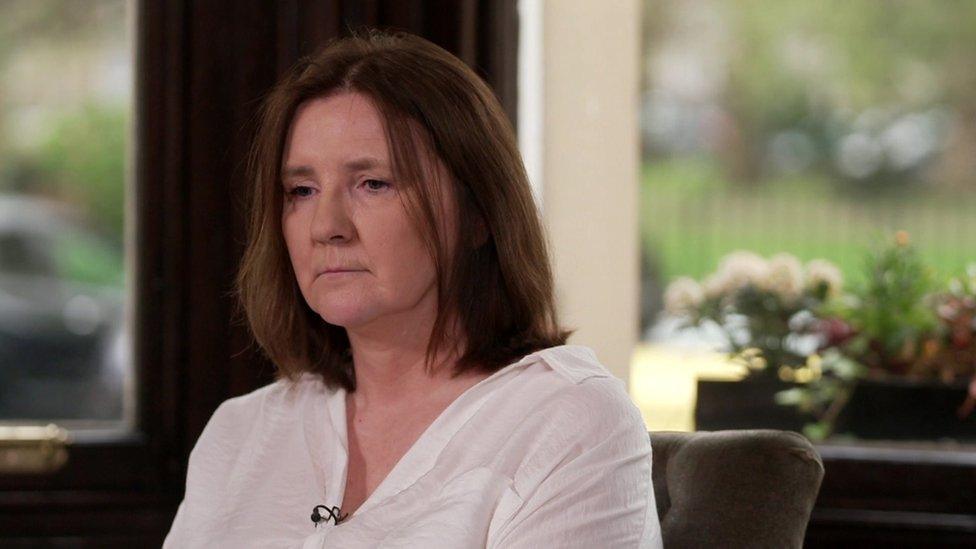
Karen Harper said she was bullied by a colleague
Karen Harper was a police officer in Lanarkshire and Dumfries for 22 years but quit in 2017 due to ill health.
In an employment tribunal she claimed bullying and victimisation but this was not upheld.
She told Newsnight: "Taking on an organisation with a power and resources of a national police force is never going to be anything other than life-changing.
"But it's all for nothing. Because you realise it was a sham. Because what I think now is, I just don't think the truth means anything.
"The truth means nothing in policing now."
Tackling this challenge
In response to the claims of the four women, Deputy Chief Constable Malcolm Graham said: "Policing in Scotland is not immune from the sexism and misogyny which persists across society and we are tackling this challenge head-on.
"The onus is on us to address policy, process and education gaps and challenge bias at every level and wherever it occurs to maintain and build confidence with all communities.
"Earlier this year the chief constable appointed a dedicated chief officer to provide the sustained leadership required to co-ordinate and drive this essential work as we build a service where everyone feels valued and is able to flourish."
Deputy Chief Constable Graham added: "We are realistic about the challenges ahead, however when we sought the views of officers and staff they made it clear progress is being felt in Police Scotland and any assertion otherwise is without foundation.
"Our resolute determination and approach to creating a society where women and girls live free from violence, abuse, exploitation and harassment is outlined in our violence against women and girls strategy, published in March."
In relation to Ms Malone, Police Scotland said it had made a public apology to the former firearms officer and in the days after the employment tribunal judgment, the chief constable commissioned the Police Service of Northern Ireland to carry out an independent review of the decision.
A Police Scotland statement said that during a meeting in April 2022, the chief constable listened to Ms Malone's experiences and personally provided an unreserved apology for the poor response when a dedicated officer raised legitimate concerns.
In relation to Ms Harper's experience, Police Scotland said: "The employment tribunal found Ms Harper's complaint to Police Scotland was dealt with carefully and diligently even though our response did not uphold her complaint.
"While the tribunal ruled against the overwhelming majority of Ms Harper's claims, we recognise that a now-retired officer was found to have shared concerns about Ms Harper in retaliation to her raising a grievance against him.
"We take whistleblowing seriously and have set up an independent advice line to provide confidential, expert advice to any officers and staff who have any concerns."
Commenting on Ms Gallivan's case, Police Scotland said: "A member of police staff raised a number of grievances.
"The matters were appropriately concluded, the individual no longer works for Police Scotland and we have not received an employment claim."
- Published14 February 2023
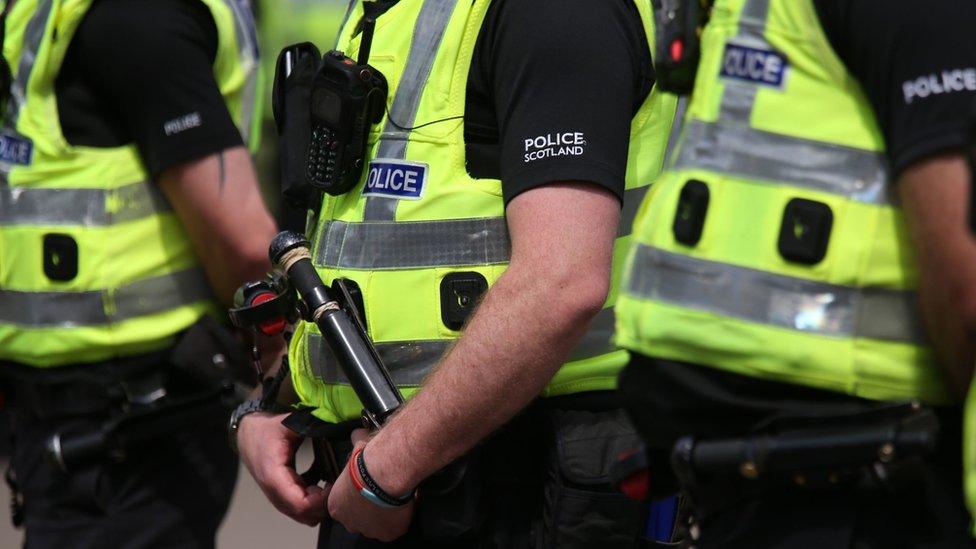
- Published13 May 2022
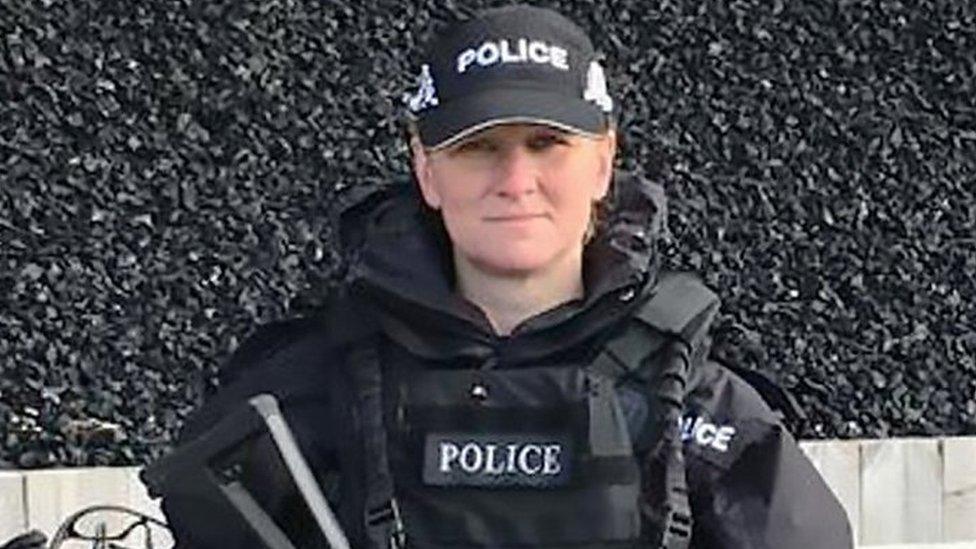
- Published8 February 2023
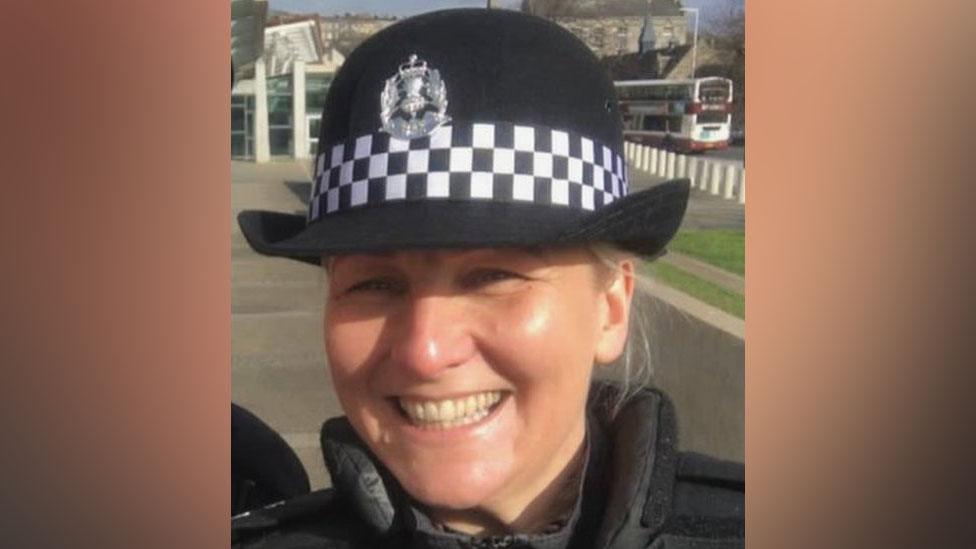
- Published19 January 2023
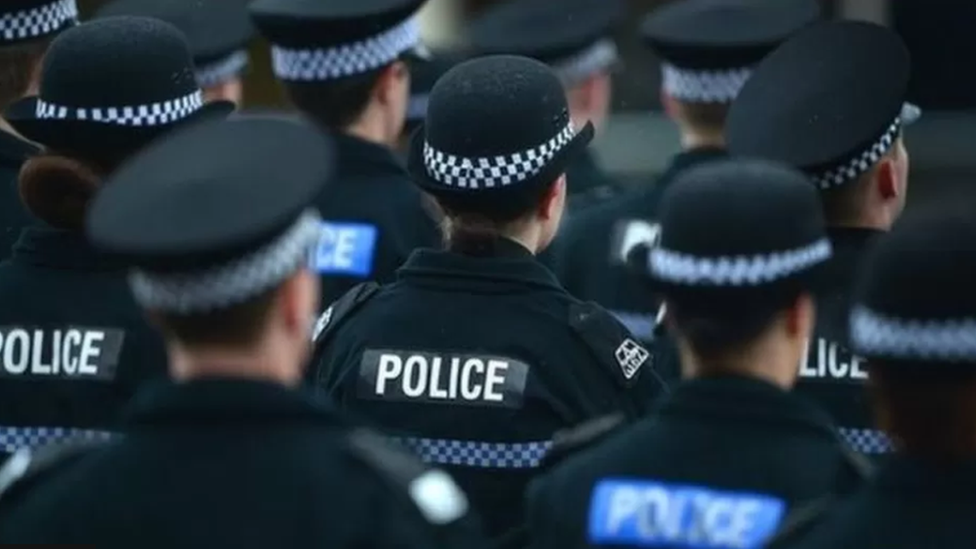
- Published19 October 2018
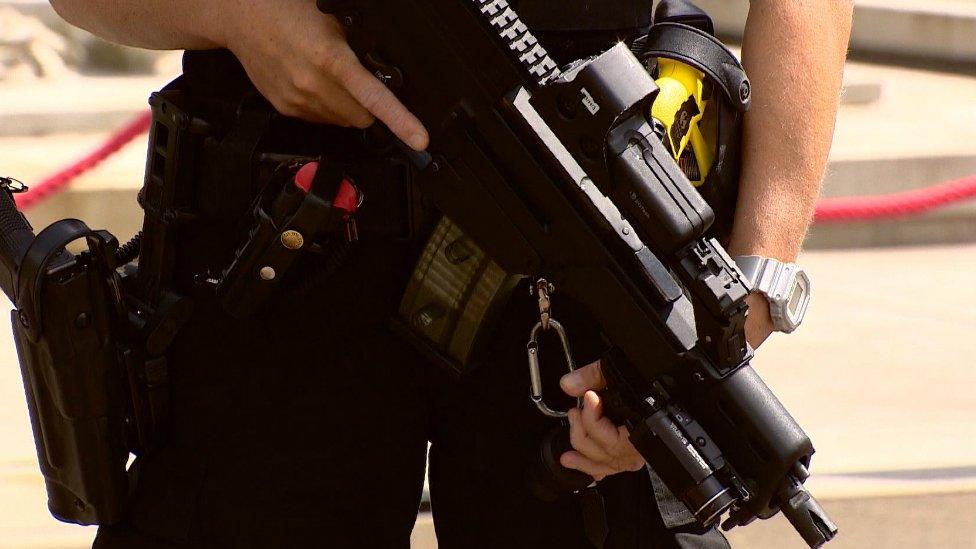
- Published16 August 2018
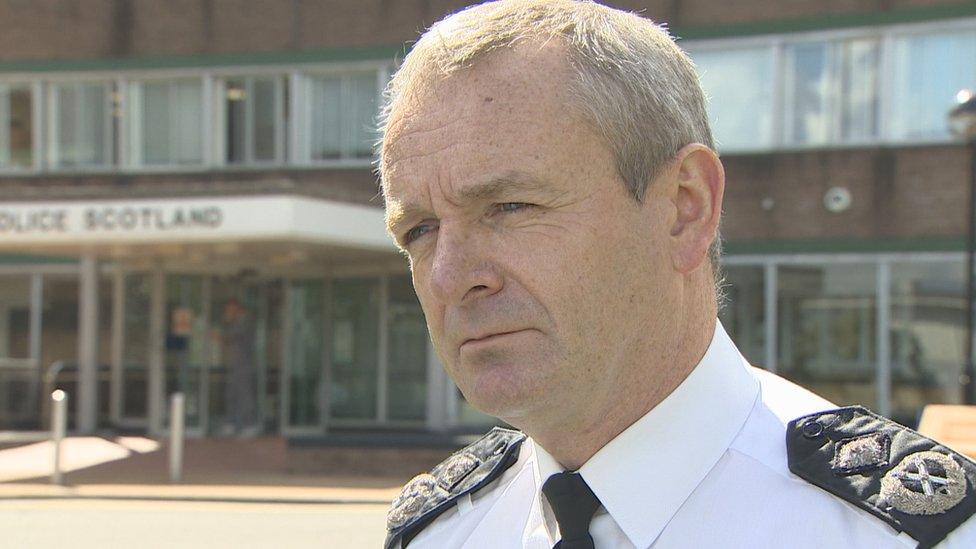
- Published7 May 2018
